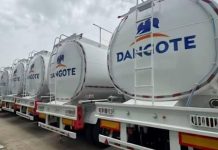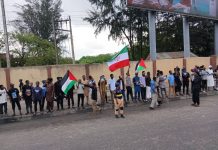The Federal Government has announced heightened surveillance measures for passengers arriving from China, following a surge in cases of Human Metapneumovirus (HMPV) in the country. The virus, which primarily affects children, has caused overcrowded hospitals and public concern in northern Chinese provinces this winter.
While neighboring countries such as Cambodia, Taiwan, and Hong Kong have reported isolated cases, there have been no widespread outbreaks. Chinese authorities have implemented measures such as mask-wearing, social distancing, and disinfection of public spaces to curb the spread.
Although less severe than COVID-19, HMPV is a respiratory virus that spreads via respiratory droplets or contact with contaminated surfaces. Symptoms include cough, fever, nasal congestion, and shortness of breath, with severe cases leading to bronchitis or pneumonia.
Dr. John Oladejo, Director of Special Duties at the Nigeria Centre for Disease Control, confirmed that Nigeria would activate surveillance, including quarantine measures for travelers from China, to prevent the virus from entering the country.
Medical experts have lauded this step, emphasizing the importance of continuous monitoring. Dr. Moses Adewumi, a virologist at the University College Hospital, Ibadan, stressed that surveillance should be a standard practice, noting that lapses after COVID-19 preparedness could leave the nation vulnerable to emerging diseases.
Similarly, Dr. Oladipo Kolawole of Adeleke University highlighted the importance of early detection and isolation, adding that enhanced screening at entry points and quarantine measures are critical to mitigating risks.
First identified in Pakistan in 2001, HMPV has caused periodic outbreaks in Asia, but no cases have been reported in Africa. Experts caution that the current surge may involve new variants, underscoring the need for vigilance and investment in local research and preparedness.
The World Health Organization (WHO) has recommended preventive measures such as vaccinations, wearing masks, regular handwashing, and avoiding contact with symptomatic individuals. While no travel restrictions have been advised, WHO urges travelers to seek medical care if they experience respiratory symptoms during or after travel.
Health authorities and stakeholders are now tasked with ensuring Nigeria’s readiness to detect and manage potential cases of HMPV, avoiding a repeat of the challenges faced during the early stages of the COVID-19 pandemic.










